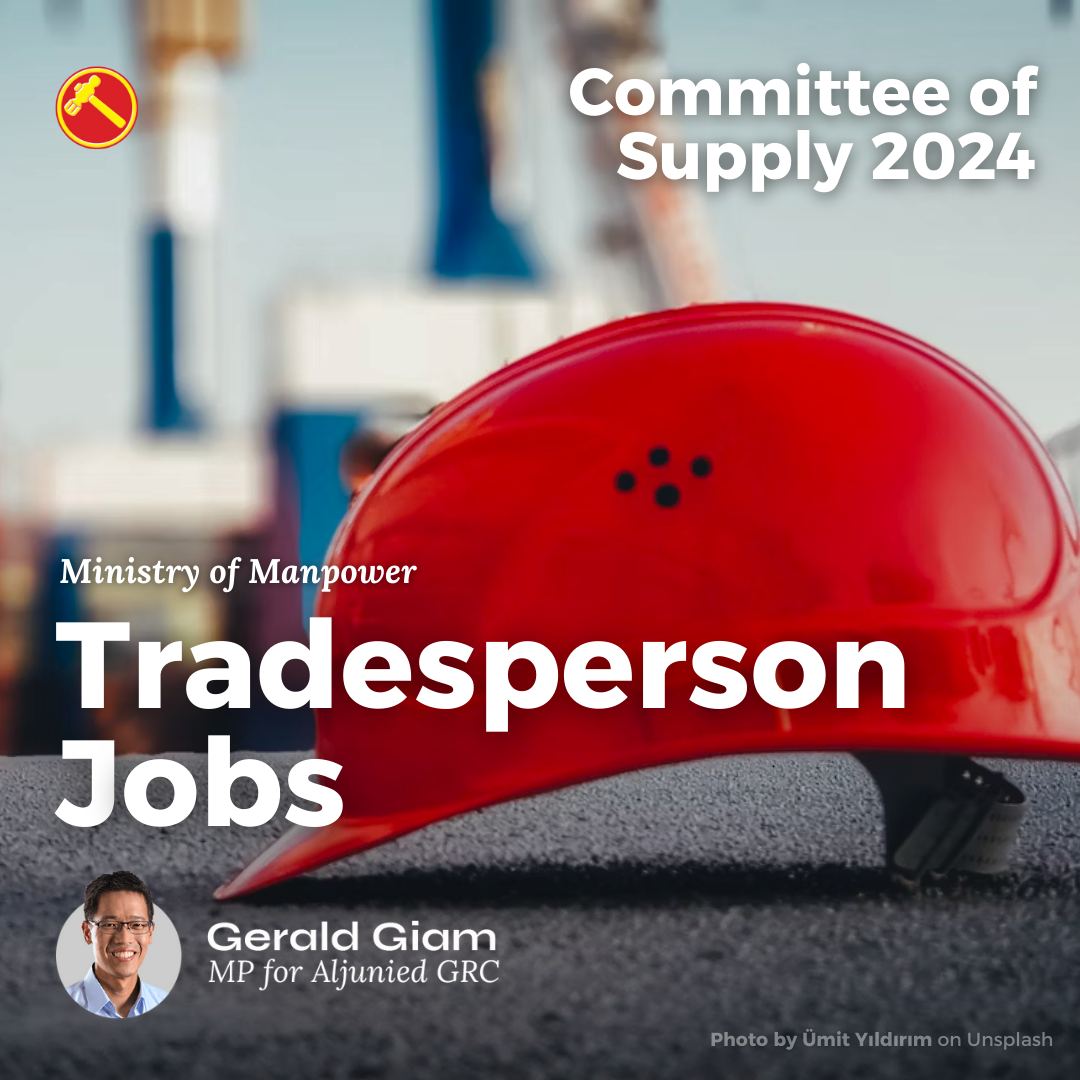My “cut” on the Committee of Supply debate (Ministry of Manpower), 4 Mar 2024.
There are approximately 186,000 craftsmen and trades workers in Singapore. Their median salary is $2,700, and their median age is 56 years. Over 70% are foreigners. The low wages, ageing workforce and heavy reliance on foreign labour in this crucial sector is concerning.
I acknowledge the efforts by MOM, industry associations, unions and IHLs to professionalise these trades. However, attracting young Singaporeans remains a pressing challenge.
To overcome this, we first need to boost societal respect for skilled tradespersons — or “tradies”, as they are affectionately called in Australia.
Schools and trades associations can create greater public awareness about what tradies do. They are not all dirty, difficult and dangerous jobs. For example, licensed plumbers often do more supervision and inspections of plumbing works than the “dirty work” themselves.
Young people who prefer working with their hands should be encouraged to consider skilled trades instead of forcing themselves to study an academic subject they have little interest in.
Second, we need to lower the barriers for entry for Singaporeans to become licensed tradespersons. All courses and mentorship programmes leading to licensing should be more subsidised under SkillsFuture, even for workers under 40, and more places should be set aside for Singaporeans.
Third, to raise incomes of skilled tradespersons, agencies must rigorously enforce regulations against unlicensed individuals performing tasks that are legally reserved for licensed tradespersons. This will uphold the required quality and safety standards and prevent licensed tradespersons’ earnings from being unjustly undercut by unlicensed competitors.
Sir, for avoidance of doubt, I declare that I am the director and shareholder of a company that provides technology solutions to training providers.
